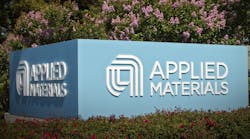Applied Materials, the world's largest vendor of semiconductor equipment, on Monday agreed to acquire rival Kokusai Electric from investment firm KKR for $2.2 billion. The acquisition is aimed at expanding Applied's product lineup ahead of an expected rebound in demand for memory chips used in things like data centers, smartphones and personal computers.
The deal unites two companies in the same business but focused on different products. Kokusai's specialty is batch processing systems that Applied said would complement its leadership in single-wafer processing for memory and a range of other chips. Once the deal closes, Kokusai will operate as a unit inside Applied's semiconductor division. The unit will remain based in Tokyo, Japan.
The deal comes against the backdrop of a major slowdown in the memory chip market. Demand for memory chips used in data centers, smartphones and a broad range of other devices has declined sharply over the last year. That has saddled DRAM and NAND suppliers with a glut of inventory and pushed them to cut capital spending—cuts weighing on semiconductor equipment makers like Applied.
Applied is the No.1 player in the market for equipment used early in the process of transforming slabs of silicon into memory and other computer chips. It serves some of the world's largest chip makers, including Samsung, Intel and TSMC. Business has boomed under C.E.O. Gary Dickerson as customers race to build more advanced processors for things like artificial intelligence and 5G technology.
Kokusai, the No.10 player in the chipmaking equipment market, focuses on selling batch processing systems popular in the production of DRAM, NAND and other memory chips, which accounted for 35% of the $475-billion global chip market last year. Some of the company's top customers are Samsung, SK Hynix and Micron Technology—the world's three largest memory chip suppliers, respectively.
"As we look ahead to the industry's future challenges, we believe batch processing has an important role to play," Dickerson said Monday on an analyst conference call. He added that the total market for batch processing systems from 2016 to 2018 swelled 35% on average per year amid an upsurge in global memory sales. Kokusai, which employs 1,900 people, has sales of more than $1.5 billion annually.
Santa Clara, California-based Applied is using the deal to expand its share of the chip industry's capital spending. The market for semiconductor equipment soared from $56.6 billion in 2017 to $64.5 billion in 2018, according to industry body SEMI. Global sales of chipmaking equipment are expected to decline 4% in 2019. The overall market is projected to grow over 20% to $71.9 billion in 2020, SEMI said.
The global chip industry has been reshaped in recent years as companies combine to fight mounting costs, slowing growth and shrinking customer bases. The same trends are pushing equipment vendors to consolidate. In 2013, Applied tried to acquire Tokyo Electron in a deal that would have valued it at $29 billion. But the company cancelled the deal in 2015 after running afoul of U.S antitrust regulators.
Applied said the Kokusai deal should close within 12 months. The company's chief financial officer, Dan Durn, told investors Monday that the deal does not require the consent of the U.S. Justice Department, which shot down its $10 billion offer for Tokyo Electron. But given the ongoing trade tensions between the United States and China, the deal could still face unsparing scrutiny from Chinese regulators.
The deal will broaden Applied's product portfolio and expand its business in Asia, Dickerson said. He added that Kokusai currently has an installed base of 10,000 systems, which will help bolster Applied's growing global services business. "By bringing Kokusai into Applied we believe we will accelerate innovation for our customers and create significant value for our shareholders," Dickerson said.
